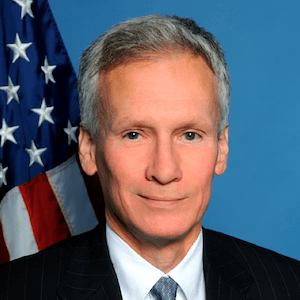Insight into McWatters’ Resignation from NCUA
Posted by Lynn Heider on November 25, 2020

Earlier this week, NCUA Board member J. Mark McWatters was reportedly asked to resign by the White House, following the NCUA’s November Board meeting. We have learned of two additional departures from the agency — Katie Supples, Board Member McWatters’ Scheduler and Sarah Vega, who had served as McWatters’ Chief of Staff and in the office of his predecessor, Michael Fryzel.
While it is unclear what precipitated the departures, the tensions between Board Chair Rodney Hood and McWatters have been visible since the NCUA’s May 21 Board meeting. At that meeting, the Chairman had brought a rule that would have allowed credit unions some flexibility on overdrafts. The proposed rule was tabled after it became clear that the Chair did not have the votes necessary to move the agenda item forward. At the following meeting, Chairman Hood pulled a rule off the agenda that would have raised the Risk Based Capital (RBC) thresholds. This rule was pulled at the last minute due to potential conflicting opinions on the Board, which was surprising, given the fact that the proposed rule was expected to be similar to a rule that McWatters had proposed when he led the NCUA.
In July, McWatters penned an op-ed that seemed to question Chairman Hood’s leadership, ability to develop consensus, and to seek input from staff and leaders within the NCUA.
“Although becoming a board member or Chair at the National Credit Union Administration does not require a degree in mathematics, it is often helpful to know how to count to two and, even better, to three” stated McWatters in the op-ed.
The issues seem to have come to a head during the most recent November 2020 meeting, as McWatters challenged the Chairman’s stewardship of the Share Insurance Fund (which is expected to be above 1.3% at the end of 2020), while also questioning his handling of the 2021 NCUA budget.
While these incidents may or may not have precipitated McWatters’ and members of his support team’s departure, what happens over the course of the next few weeks will have a long-term impact on the direction of the NCUA Board. Todd Harper will likely be named NCUA Board Chair, possibly before the NCUA’s February meeting, and he faces a prospect of working with a Board that may not share his priorities.
Two possible scenarios appear to be possible:
The first possibility is that President Trump’s nominee, Kyle Hauptman, is confirmed during the “Lame Duck” Session of Congress to take the seat vacated by Board Member McWatters and fill that seat that until it expires Aug. 5, 2025. Hauptmann and Hood would likely align on many issues and may restrain the Chairman that is eventually appointed by President-Elect Joe Biden.
Hauptman’s appointment was taken one step closer when Senate Majority Leader Mitch McConnell (R – KY) filed a cloture motion on the nomination, setting it up for a vote of the full Senate in early to mid-December.
A second possibility is that Hauptman remains un-confirmed and current Board Member Todd Harper is named Chair of the NCUA. In that scenario, he begins to lead a two-person Board, which includes Hood. Harper would be Chairman until his term expires in April. At that juncture, President Biden would have the ability to nominate two NCUA board members at once, in order to fill both expired terms.
What remains clear is that Chairman Hood and Board Member Harper are going to need to work together over the next few months, as we continue to navigate the fallout from the pandemic and they work to advance initiatives beneficial to the credit union industry.
Posted in Advocacy on the Move.





















